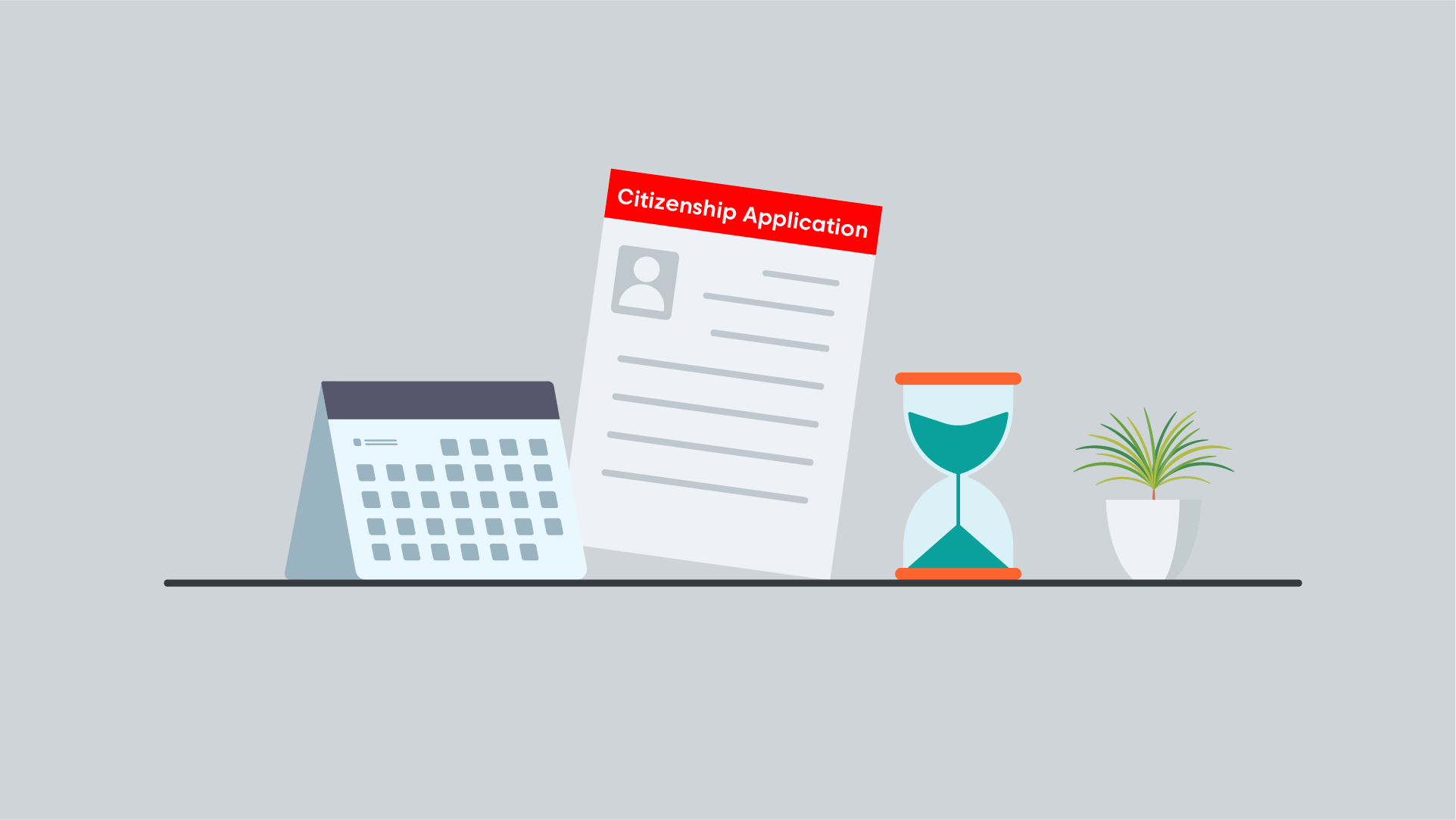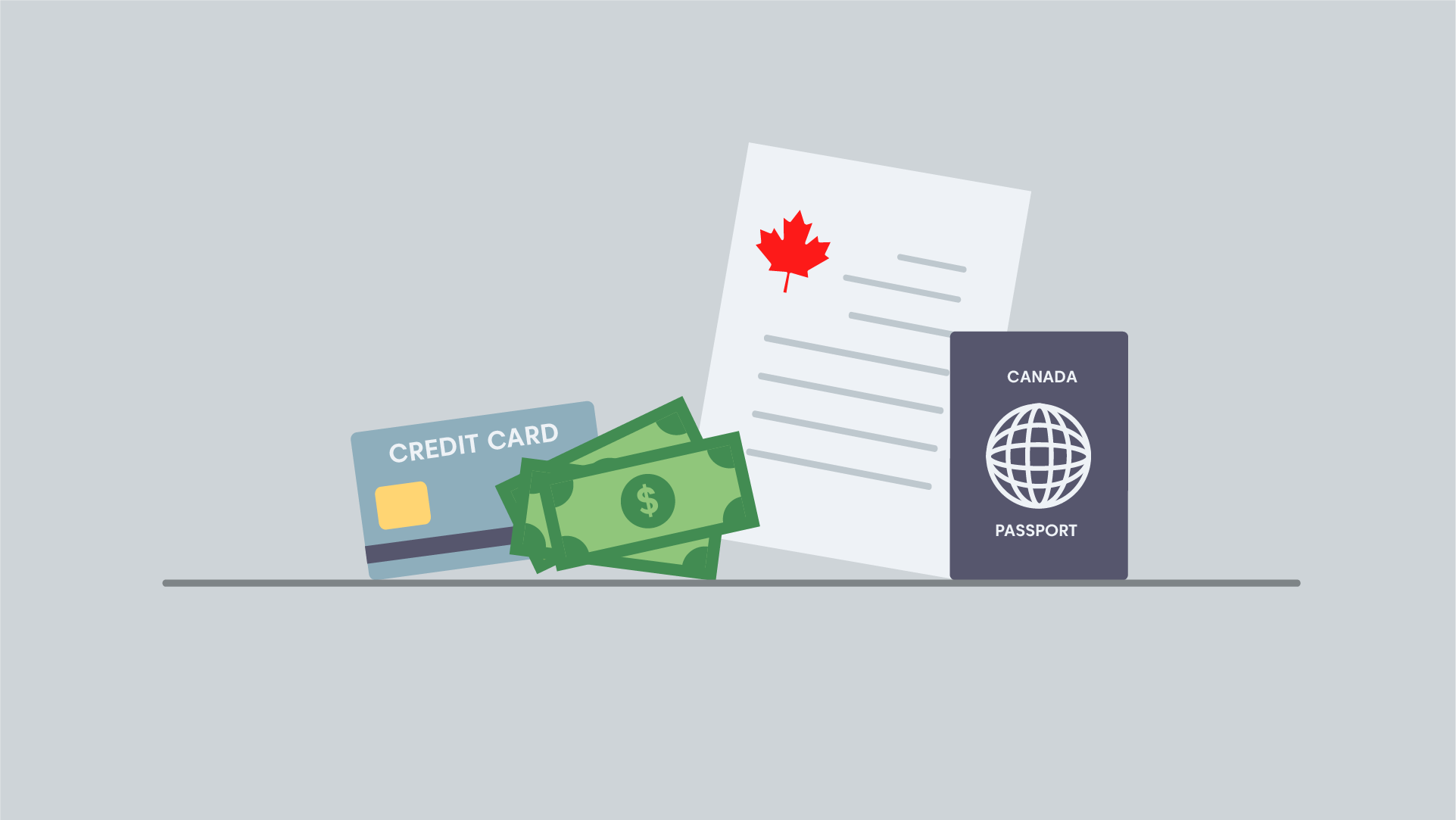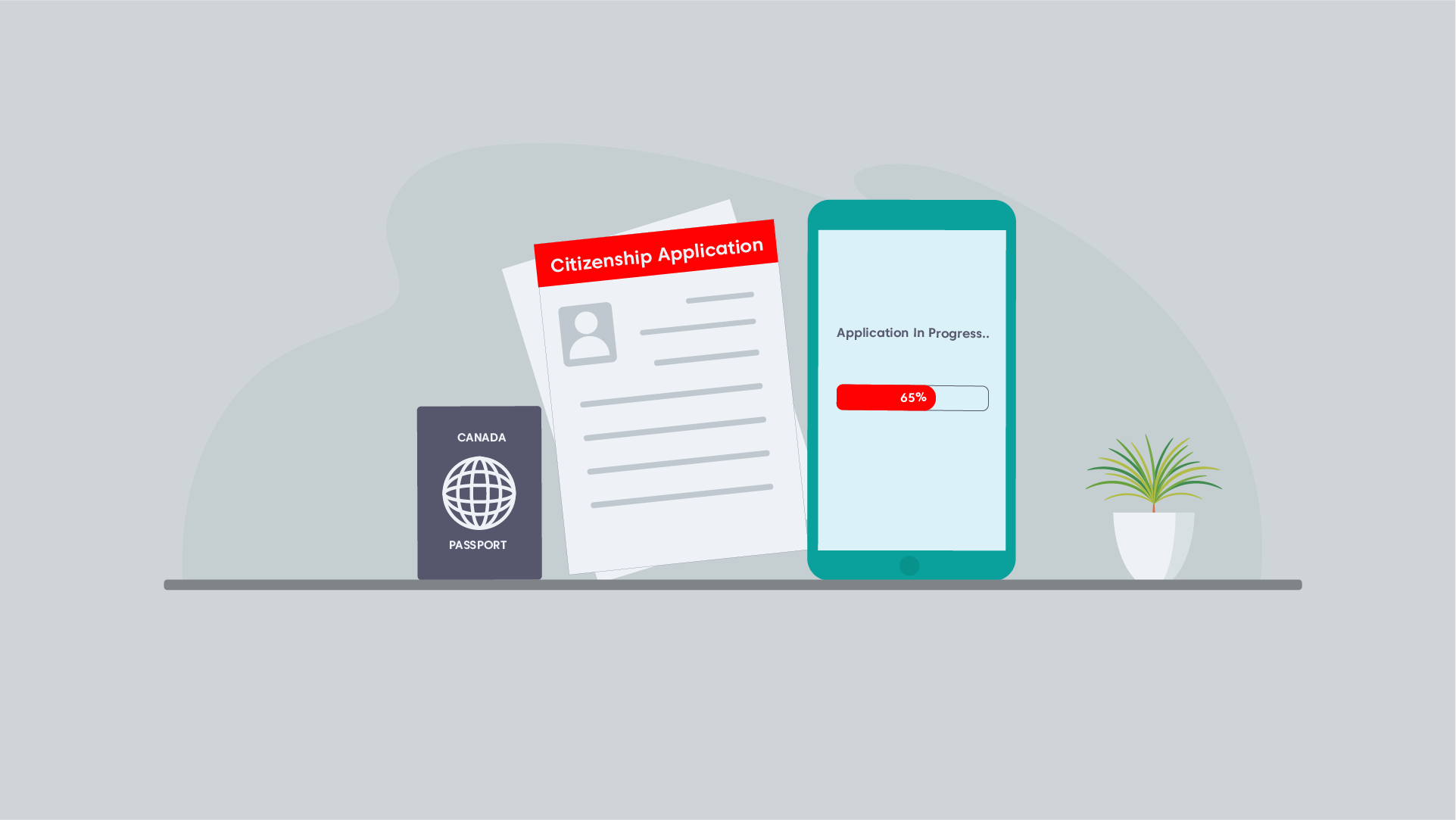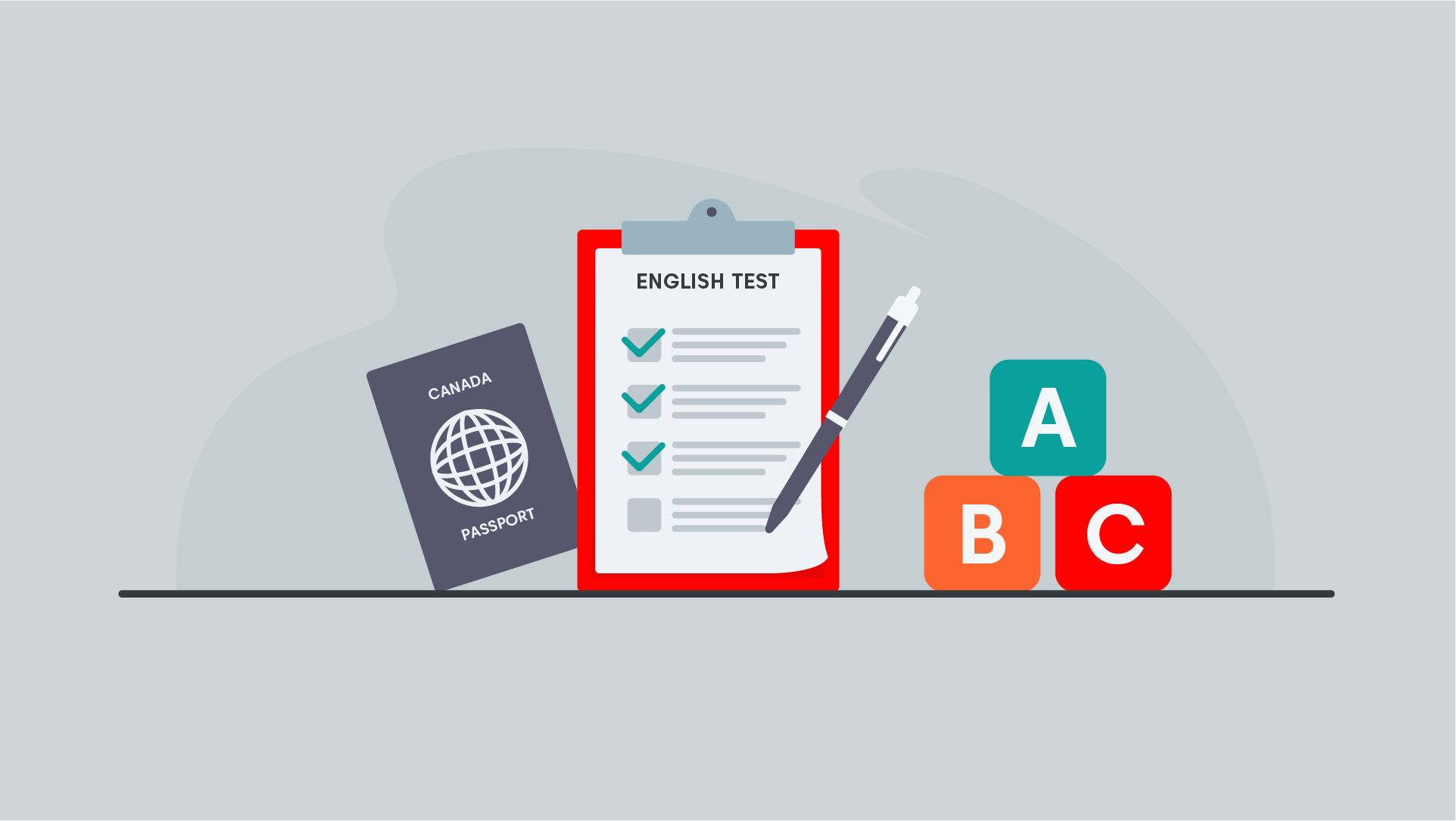Your Guide to Canadian Citizenship: What to Know About Processing Times
By Umme Hani on Oct 22, 2024
- What is the Average Canadian Citizenship Application Processing Time?
- Canadian Citizenship Step-by-step Process
- Factors Influencing Canadian Citizenship Application Processing Times
- Is Your Application Stuck? Common Reasons for Delays in Canadian Citizenship Processing
- What to Do If Your Canadian Citizenship Application is Taking Too Long
- How to Expedite Your Canadian Citizenship Application
- How to Track Your Citizenship Application Status
- Legal and Special Considerations in Canadian Citizenship Processing
- Resources for Applicants
Applying for Canadian citizenship can be quite the rollercoaster ride—exciting but riddled with obstacles.
Will it take a year? Two years? Or longer?
The wait can feel endless, especially after years as a permanent resident.
In addition, citizenship requirements like filing taxes and proving language skills can make the process seem even more daunting.
You no longer need to be confused about how long the process will take or what is required. Learn everything you need to know to approach your Canadian citizenship journey stress-free.
What is the Average Canadian Citizenship Application Processing Time?
Let’s face it: waiting for the final approval of your Canadian citizenship can really test your resolve. On average, completing the Canadian citizenship application process takes anywhere from 12 to 24 months
Sounds like a long time, right? The truth is that the process isn’t as complicated as it may seem. Stick with us as we break down the application process.
Canadian Citizenship Step-by-step Process
There are a few critical factors that impact your processing time. Understanding each step and the time it takes can help ease some of that anxiety.
So, what does the timeline actually look like? Let’s have a look:
-
Gathering Required Documents (1–3 months)
The first and arguably one of the most critical steps is gathering all the documents. You’ll need proof of permanent residency, tax records for at least three out of the last five years, language test results (if applicable), and identity documents. This stage could take anywhere from a few weeks to a few months, depending on how quickly you can gather everything. Some documents, like language test results, might take a little longer to obtain. However, if you plan ahead, you can keep this stage short.
-
Submitting Your Application (2–4 weeks)
Once you’ve got all your documents together, it’s time to apply for citizenship in Canada online. The online system makes it easier to fill out forms, upload your documents, and submit your application. After submitting, it takes about 2 to 4 weeks to receive an acknowledgment of receipt (AOR) from the IRCC. This step confirms they’ve received your application and will begin processing it. You’ll be notified if you miss any documents.
-
Application Review (5–12 months)
Now, this is where the real waiting begins. The IRCC will carefully review your application to confirm that you meet all Canadian citizenship application requirements. This review period can take anywhere from 5 to 12 months. If you’re lucky and have submitted everything accurately, your application might sail through quickly. But even the smallest mistake could send your file to the back of the line.
-
Language Test and Citizenship Test (2–6 months after review)
Those between 18 and 54 must pass a language and citizenship test as part of their case. You’ll receive a notice inviting you to take the tests. However, it may take between 2 and 6 months to be scheduled for these tests after your documents have been reviewed.
The citizenship test covers basic topics such as Canadian history, geography, the political system, and the rights and responsibilities of citizens. If you’re nervous about the test, don’t worry! You can study the official guide, “Discover Canada,” and pair it with free practice tests to prepare. Missing your test date, however, could result in more delays. -
Citizenship Interview (Usually Same Day as Test)
Some applicants are required to attend a citizenship interview. This happens on the same day as the citizenship test. It’s a pretty simple process, but not everyone will need to go through it.
-
Decision Making (2–4 months after Test)
After completing the test and interview, your application moves to the decision-making stage. This can take around 2 to 4 months, depending on how quickly the IRCC can review your test results and verify that all requirements are met. If everything checks out, you’ll be approved and notified about the next step—the citizenship ceremony. If not, you may be asked to provide more information.
-
Citizenship Ceremony (1–3 months after decision)
Congratulations, you’ve made it! Once approved, you’ll be invited to take the Oath of Citizenship in a ceremony. This is the final step in the process and officially grants you Canadian citizenship. The ceremony is often scheduled about 1 to 3 months after the decision on your application. Due to the backlog of applications, some people have had to wait a bit longer for this special day, but it’s worth it.
-
Getting Your Canadian Passport (1-2 months)
Once you’re a citizen, you can apply for a Canadian passport. Obtaining your passport can take an additional 1 to 2 months. This depends on how quickly you can submit your application and how busy Passport Canada is.
Practice for Your Canada Citizenship Test Now!
Access hundreds of topic-specific questions
Start a Practice TestFactors Influencing Canadian Citizenship Application Processing Times
The Canadian citizenship application process can be lengthy. However, understanding the factors that influence the timeline can help you better prepare.
According to the IRCC, several factors impact the Canadian citizenship processing time, whether you’re applying in 2023, 2024, or beyond.
Type of Application Submitted
The type of application you submit directly affects the citizenship processing time in Canada. For instance, regular adult applications might take less time than applications involving minors or individuals with special circumstances. Similarly, paper applications can take longer to process than online ones. Online submissions tend to move faster through the system.
Completeness of the Application
An incomplete application is one of the most common reasons for delays. Forgetting to submit certain documents or filling out your form incorrectly will extend the Canadian citizenship wait time. Make sure every section of your application is complete and all supporting documents are attached to avoid unnecessary back-and-forth with IRCC.
Processing Volume
The number of applications already in the system influences the citizenship processing time in Canada. During peak times—such as after major policy changes or announcements from the government—the IRCC may be handling a high volume of applications. This can cause delays in processing. So, if you're applying during a busy period, expect a longer Canadian citizenship processing time in 2024 or beyond.
Verification of Information
How easily IRCC can verify your information will also affect your Canada citizenship timeline. The faster they can confirm your identity, background, and eligibility, the quicker your application will move through the system. If IRCC needs to conduct further checks or request additional information, it can extend the processing time for Canadian citizenship.
Response Time to IRCC Requests
If IRCC asks you for additional documents or clarification, your Canada citizenship processing time will depend on how quickly you respond. Delays in providing the required information will extend your citizenship timeline in 2024. Make sure to check your email or portal regularly to respond promptly to any requests from IRCC.
Other Factors
Other variables can also impact your processing time for Canadian citizenship. For example, global events like pandemics or government strikes can slow down operations. Regional factors, such as the availability of local citizenship test centers, also play a role. In some cases, urgent travel or emergencies may qualify you for expedited processing. This will considerably reduce your Canadian citizen processing time.
Is Your Application Stuck? Common Reasons for Delays in Canadian Citizenship Processing
Waiting for your Canadian citizenship can feel like a long process, especially when unexpected delays occur. If you're wondering, "How long does it take to get Canadian citizenship after applying?" or "Why is my application taking so long?", it’s helpful to understand the common reasons for delay.
Here are some factors that could be holding things up.
Incomplete or Incorrect Application
The most frequent reason for delays is an incomplete or incorrect application. Forgetting to include important documents or providing incorrect information can slow down the citizenship process. IRCC will likely ask you for additional documents, which extends the time it takes to get citizenship in Canada. Make sure your application is complete and double-check everything before submitting it.
High Volume of Applications
The number of applications IRCC receives can influence how long the Canadian citizenship process takes. During peak times, such as after new policy changes, the Canadian citizenship wait time can increase due to the sheer volume of applications. This may cause your application to be delayed even if everything is in order. If you're wondering, "How many days for Canadian citizenship approval?" during busy periods, expect longer-than-usual processing times.
Delays in Background and Security Checks
Every applicant goes through background and security checks as part of the Canadian citizenship process. If your case requires additional verification or information, it could slow down the Canadian citizenship process. IRCC must ensure all security protocols are followed, which can take time, depending on your background.
Missed Communication with IRCC
Sometimes, the delay is due to missed communication. If IRCC requests additional documents or information and you don’t respond promptly, your application processing could stall. Keep an eye on your email and the IRCC portal to ensure you don't miss any important updates. This can directly impact how long it takes to become a Canadian citizen.
Delays in Citizenship Test or Interview Scheduling
A large part of how long the process for Canadian citizenship takes depends on when you are scheduled for your citizenship test and interview. If your local test center is busy or there are fewer available slots, you might experience delays. It’s not unusual for applicants to wait longer to be scheduled for their test.
Verification of Supporting Documents
IRCC may need to verify the documents you submit, like travel history or proof of residency. The ease with which they can confirm these details will affect the time it takes to complete the Canadian citizenship application. If they encounter difficulties, your processing time may increase.
COVID-19 or Other Global Events
It’s worth noting that global events like COVID-19 can impact citizenship processing times in Canada. These events affect government offices, staffing, and operations, contributing to delays. If you're applying now, be aware that external factors may still play a role in how long it takes to get citizenship in Canada.
What to Do If Your Canadian Citizenship Application is Taking Too Long
If your Canadian citizenship application takes longer than expected, it’s natural to feel frustrated.
Before worrying too much about how long it takes to get Canadian citizenship after applying, there are a few things you can do. You can take some steps to understand what might be causing the delay.
Check the IRCC Processing Times
The first thing you should do is check the official IRCC website for updated citizenship processing time in Canada. Processing times can vary depending on factors like application type and region. This will give you an idea of the average wait time, whether you applied in 2023 or are now waiting in 2024.
Monitor Your Application Status Online
IRCC provides an online tool where you can track the progress of your application. If you’re asking, “How long does it take to become a Canadian citizen?” the status tool will keep you updated on whether your application is under review or if you need to take action. Regularly checking your status ensures you don’t miss important updates.
Contact IRCC for Clarification
If Canadian citizenship processing time exceeds the timeline listed on the IRCC site, contact them directly for clarification. Sometimes, delays occur because additional documents are required or background checks are taking longer. Contacting IRCC can give you insights into the wait time.
Ensure There Are No Missed Requests
Delays often happen because applicants miss an email or letter requesting additional information. If you’ve been waiting longer than expected, check your email inbox, spam folder, and the IRCC portal to ensure you haven’t missed any communication. A missed request could add weeks or even months.
How to Expedite Your Canadian Citizenship Application
Speeding up the Canadian citizenship process is possible under specific circumstances.
If you’re facing a personal emergency or need to travel, you may qualify for expedited processing.
Determine if You’re Eligible for Expedited Processing
Expedited processing is available if you qualify. IRCC can fast-track your application for urgent medical travel or emergencies. This helps if you're worried about how long it takes to process Canadian citizenship and need faster results.
Submit a Request for Urgent Processing
To request expedited processing, you must provide supporting documents, such as proof of your emergency or urgent travel plans. This may reduce how long it takes to get citizenship in Canada. Keep in mind that submitting the correct paperwork is crucial to avoid further delays.
Stay on Top of Communications
Once you submit your request for expedited processing, respond quickly to any additional questions or IRCC documentation requests. The quicker you provide what they need, the faster your Canadian citizenship can be processed. Missing a communication could result in your application falling back into the standard processing queue.
Consider Legal Assistance
Unsure how to expedite your application? Concerned about how long it takes to apply for Canadian citizenship? Consulting with an immigration lawyer may help. A lawyer can guide you through the process and assist with submitting your urgent request properly. This will keep you from experiencing unnecessary delays.
How to Track Your Citizenship Application Status
Once you’ve submitted your Canadian citizenship application, you’ll want to stay updated on its progress.
IRCC Online Portal
The best way to track your application progress is through the IRCC portal. You can log in and check updates on milestones, such as whether your application was received when your citizenship test is scheduled or if there are any additional requests for documents. This tool helps you stay on top of your Canada citizenship timeline. Moreover, it ensures you know what to expect next.
Check Your Email Regularly
IRCC often communicates through email, sending you important updates regarding your application status. Check your inbox (and spam folder) regularly to avoid missing any requests or updates. For example, missing a request for additional documents could significantly slow down your citizenship processing time.
Sign Up for Updates
You can also sign up for automatic updates through the IRCC’s online services. This option provides real-time notifications about changes to your Canadian citizenship processing time, helping you manage your expectations about how long it takes to process Canadian citizenship.
Legal and Special Considerations in Canadian Citizenship Processing
In some cases, certain applicants face additional hurdles that may affect the overall Canadian citizenship processing time. Understanding how these unique circumstances impact citizenship will help you manage expectations and prepare accordingly.
Applications from Refugees
If you’re a refugee applying for Canadian citizenship, you might experience a longer processing time. This may be due to the additional verification steps involved. IRCC will need to thoroughly review your refugee status and legal documentation, which may include cross-checking with international agencies. This extra level of scrutiny can add to the Canadian citizenship processing time. That’s because officials work to ensure that all information is accurate and verified. However, once the refugee status is confirmed, the citizenship application proceeds similarly to others.
Minors Applying for Citizenship
When minors apply for Canadian citizenship, their cases may be processed differently. This is especially the case if they’re applying with their parents. A minor's application can often be faster if linked to a parent's application, reducing the overall Canadian citizenship timeline.
However, if a child applies independently—particularly in the case of adopted children—the citizenship processing time can be longer due to additional legal verifications. In these cases, adoption records and other documents may require detailed review, leading to a longer wait time.
Complicated Legal Histories
Applicants with complicated legal histories will likely face longer Canadian citizenship processing times. This includes prior criminal records, deportation orders, or unresolved legal matters. IRCC conducts thorough background checks on all applicants. However, those with complex legal pasts may require additional review. These cases often involve consulting legal experts and external agencies to assess eligibility for citizenship.
As a result, this can significantly increase the time it takes to process Canadian citizenship.
For example, individuals with criminal convictions may need to prove rehabilitation before proceeding with their application. This adds to the overall processing time for Canadian citizenship in 2024. Similarly, unresolved immigration issues, like deportation cases or overstays, can delay the process as IRCC must confirm that all legal conditions are met.
Stateless Individuals
Stateless applicants face additional challenges. Without proper citizenship documentation from any country, these applicants must provide alternative forms of proof. Therefore, verifying their identity and legal status can take longer.
Security and Background Checks
For any applicant, security and background checks are crucial to the Canadian citizenship process. This applies to refugees, minors, and those with a complex legal history. Depending on the complexity of your background or the thoroughness of the checks required, this step can significantly extend your Canadian citizen processing time.
Resources for Applicants
Here are some official links to help you:
Immigration, Refugees, and Citizenship Canada (IRCC)
This is the official website for all matters related to immigration and citizenship. You can find comprehensive details about the citizenship process, application forms, and current processing times.
Visit: IRCC Official Website
Check Processing Times
To get the most up-to-date information on how long it takes to process Canadian citizenship applications, you can use IRCC’s tool. This provides an estimate based on the type of application and region.
Visit: IRCC Processing Times
Track Your Citizenship Application
If you’ve already submitted your application, you can track its status using IRCC’s secure online portal.
Visit: Check Application Status
Canadian Citizenship Requirements
Find details on eligibility, application steps, and the full checklist for applying for Canadian citizenship.
Visit: Canadian Citizenship Eligibility or read our blog to find out everything about the application requirements.
Contact IRCC
If you have specific questions or concerns about your citizenship application, you can contact IRCC directly for assistance.
Visit: Contact IRCC
Using official resources and staying proactive will bring you closer to calling Canada your home. For the most accurate and updated information, refer to IRCC’s official website.
Best of luck with your application!


